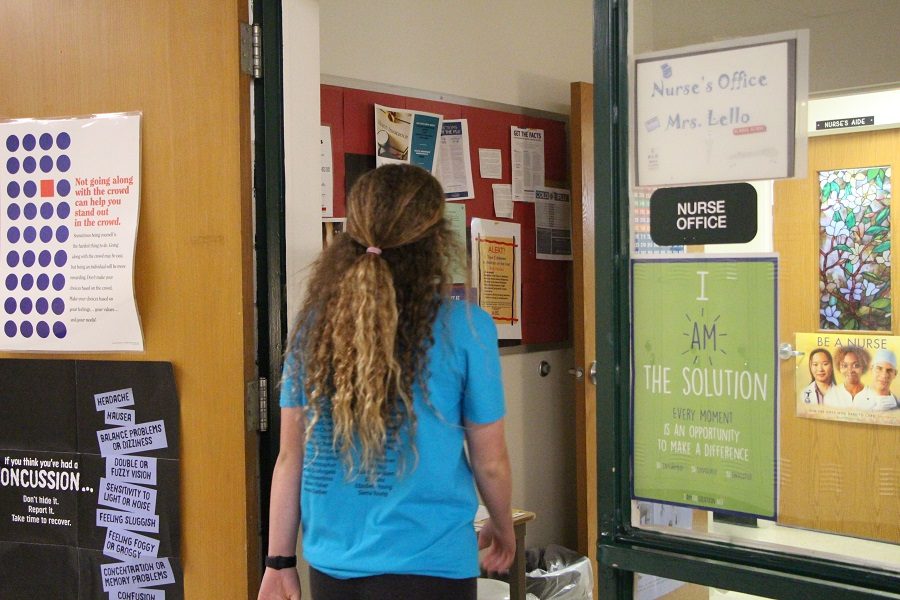Get checked out: the pros and cons of physical exams
A student enters the nurses office at CHS. In order to graduate you must get a physical and submit it to the nurse.
Along with annual vaccinations before every school year, physical examinations are required to be documented at the beginning of every year, but questions arise: are they really necessary?
Physical examinations have pros and cons and are important to ones’ health, but excessive exams leave some parents perplexed and rather stressed.
Pediatrician M. Rachel McGuffey, MD, of Lexington Clinic said, “A back-to-school physical is an ideal time to ensure children are receiving the required vaccines at the appropriate times and for the pediatrician to address any emotional, developmental, or social concerns a child, or child’s parents, may have.”
She also implied that pediatricians should be trusted with the growth of children into their teenage years to educate and discuss social issues such as drinking, drugs, smoking, sexual activity, and depression.
Unitypoint.org stated that “According to the Centers of Disease Control and Prevention, a yearly exam ensures that a child is up-to-date on vaccines to protect against serious diseases. Safeguarding a child’s health as well as the health of classmates, friends, and others in the community is the top priority for doctors and school administrators.”
On the other hand, parents have brought up good points to reconsider with requiring annual school physicals such as their child/children are not participating in sports, they are healthy, and they receive check-ups every 2-5 years.
There are also some people who do not have health insurance to cover annual physicals or any insurance at all because of the inability to pay for it, which then patients have to pay a co-pay to cover the expenses that can cost from $50 to $200. This is troublesome for the more impoverished communities who struggle with paying expenses.
Studies also show that impoverished communities have a higher birth rate, with parents, either single, divorced, or married, have more kids than the national average, which is 2 kids per household. More kids, more money paid out of pocket for those uninsured.
Receiving physical examinations is actually state law, but annual physical examinations vary depending on the state and school.
According to the Pennsylvania Department of Health, “It requires that students upon original entry, sixth and 11th grade be given a ‘comprehensive appraisal’ of their health. The physical is to be completed within 4 months prior to the start of the school year.”
Physical examinations for students is crucial for the regulation for the health of the community and for an individual’s growth, but there are barriers that may stump parents from scheduling them.
Want to help the Herd? Please consider supporting the Periscope program. Your donation will support the student journalists of CHS and allow us to purchase equipment, send students to workshops/camps, and cover our annual website hosting costs.

Autiana Easley is currently a junior at CHS and this is her second year on the Periscope staff. She has a busy schedule outside of school with three siblings...





























































































Levi Armstrong • Jun 8, 2020 at 10:32 pm
Autiana, I agree with what you said that school physical exams are crucial to protect and maintain the health of the community and make sure the children are getting required vaccines. My daughter is going to start elementary this year and I would like to be assured as a parent that her classmates are fully-vaccinated and healthy. Perhaps I would be wise to find our first about a school’s physical exam policy before I enroll her there, or even talk to the administrators why it’s important so they’ll have one yearly. Thanks for this article! https://www.mantepediatrics.com/pediatric-services/